My Year of Bookish Wisdom: 2024
by Miles Raymer
Back to Bookishness
Among other things, 2024 has been a year of professional accomplishments for me. I graduated with my MA in Counseling Psychology in July, and my Associate Marriage and Family Therapist license was issued in August. After deciding to become a psychotherapist four years ago, I can now celebrate having turned that dream into a reality. I am loving the work, finally getting paid to do it, and feeling like it’s the right path for me at this stage in my life and career. As the year closes, my heart is overflowing with appreciation and gratitude for my terrific colleagues and––most of all––for the wonderful clients who share their stories with me and allow me to walk with them as they persevere, heal, and grow.
More relevant to Words&Dirt, this also means that I no longer have to spend my mornings cranking out assignments for my graduate program, and can more or less return to my previous study habits. It feels good to have regained the ability to follow my bookish curiosity wherever it leads. I’ll probably never have as much time to study as I did in the early years of Words&Dirt, but for now I am excited to return to the rhythm of regular book reviews punctuated by the occasional essay, poem, or other piece of creative writing. Here are the highlights from my year:
Nonfiction
I started the year off with a book that seemed perfectly crafted to fit this moment of my life: David Brooks’s How to Know a Person.
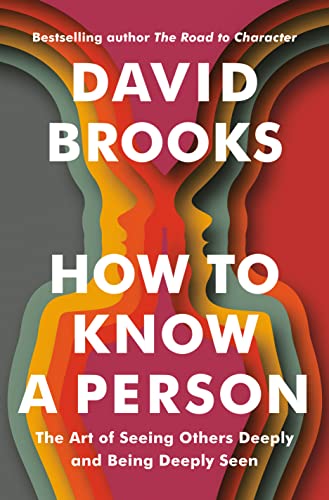
The goal of this book is to help readers learn to become “Illuminators,” which Brooks defines as folks who “have a persistent curiosity about other people” and are experts in “the craft of understanding others” (13). In service of this goal, Brooks explores his personal history, the life stories of other writers, and a variety of psychological and philosophical frameworks. In Part One, “I See You,” Brooks lays out our best available theories and techniques for social engagement in ideal circumstances. In Part Two, “I See You in Your Struggles,” he demonstrates how these tools can be utilized and adapted to provide companionship and support to people in the depths of immense suffering. And in Part Three, “I See You With Your Strengths,” he describes how we can help people share and revise the stories of their lives in ways that are compassionate, edifying, and empowering. Simultaneously modest and deeply ambitious, How to Know a Person is a remarkable work of intellectual synthesis that is guaranteed to benefit anyone who reads it.
Another text that had a big impact on me this year was Jonathan Haidt’s The Anxious Generation.
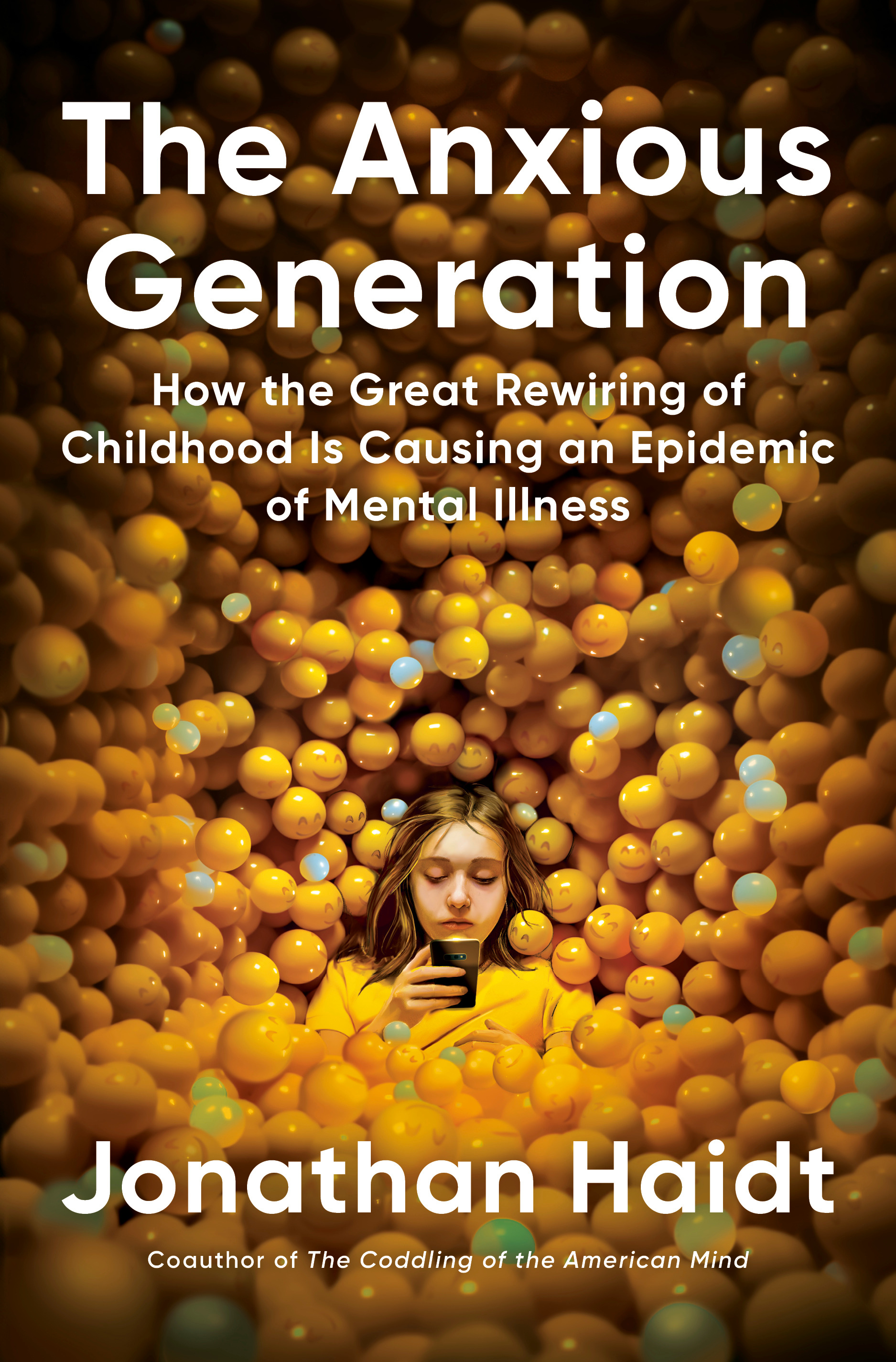
This masterful and urgently important book tells the story of how, starting in the early 2010s, the “phone-based childhood” began to radically transform the lives of young people around the world. Haidt calls this “The Great Rewiring of Childhood”––an event which he identifies as the primary cause of the recent global surge of mental health problems in children and adolescents. Another key factor is the simultaneous decline of the “play-based childhood,” which began in the 1990s and picked up steam over several decades. Haidt demonstrates how these two trends have harmed young people and their families, leading to social deprivation, sleep disruption, attention fragmentation, addiction, and spiritual degradation. The book also explains why social media is particularly damaging for girls and why gaming and pornography are more challenging for boys. In the final chapters, Haidt lays out a series of practical recommendations for collective action, including efficacious government policies, platform design updates, school reforms, and advice for individual parents. He proposes four “foundational reforms” and provides more than sufficient evidence to justify enacting all of these reforms as quickly as possible:
- No smartphones before high school
- No social media until age 16
- Phone-free schools
- Far more unsupervised play and childhood independence
My favorite nonfiction book of the year was Viktor E. Frankl’s Man’s Search for Meaning.
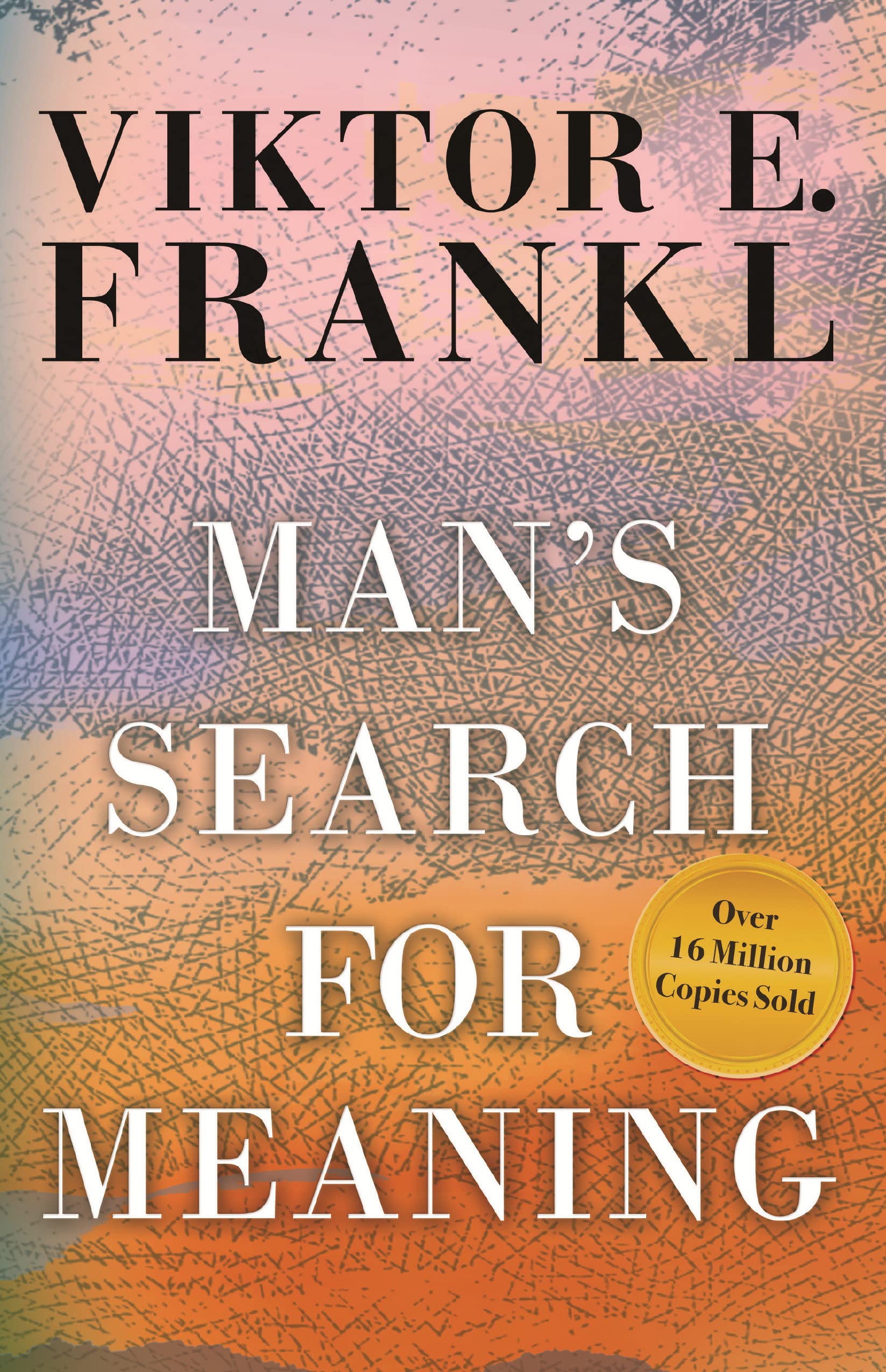
This book is a treasure trove of humanistic wisdom. Part One describes Frankl’s experiences in several concentration camps during World War II, including the notorious Auschwitz-Birkenau camp. As a gifted psychiatrist who had already begun to formulate his own flavor of existential therapy, Frankl entered the camps as both an unwilling participant and sober observer of the uniquely horrific aspects of human nature that camp life brought forth. Incredibly, Frankl was also able to identify and appreciate fleeting moments of natural beauty, humor, insight, and acts of kindness that punctuated “the abyss which is laid open by the concentration camp” (87).
Part Two summarizes Frankl’s theory of “Logotherapy,” a philosophical framework and therapeutic modality that emphasizes each individual’s “will to meaning” as the “primary motivation in his life” (99). Logotherapy is a future-facing attitude that invites us to consciously imbue even the worst suffering with meaning that stimulates the formulation of ethical action. Frankl passionately argues that, even in circumstances where we are robbed of everything but the bare fact of our continued existence, we still retain the ability to choose how we will meet the moment: “Life ultimately means taking the responsibility to find the right answer to its problems and to fulfill the tasks which it constantly sets for each individual” (77).
Media Recommendations
Music of the Year
- HIT ME HARD AND SOFT by Billie Eilish––Best new pop album I’ve heard in years, helped me finally grok why Eilish is such as superstar.
- Nectar by Joji––Beautiful and powerful album from start to finish, offering a unique blend of sounds from several genres and stunning vocals.
- Infinite Health by Tycho––Elevating new album from one of my favorite electronic artists.
- The Universe Smiles Upon You by Khruangbin––Best “chill out with friends” album.
- Songs of the Year: “Too Sweet” by Hozier and “L’AMOUR DE MA VIE” by Billie Eilish––credit to my lovely wife for brining Hozier into my life.
Podcasts of the Year
- Reflector––Excellent news podcast that produces nuanced takes on current events.
- Uncomfortable Conversations––Fun and challenging conversations with wonderful Australian host Josh Szeps.
Video Games of the Year
- Ghost of Tsushima Director’s Cut––One of the best open world games I have ever played. Amazing story, art design, sword combat, and exploration.
- Resident Evil Village––Scared the shit out of me but was worth it. Intense atmosphere, incredibly detailed environments, good gunplay, and engaging exploration.
- Jedi: Survivor––This game represents everything that my 14-year-old self wanted from a Star Wars video game, which turns out to be exactly the same as what my 36-year-old self wanted from one. Masterfully conveys the embodied experience of being a full-fledged Jedi, with gorgeous visuals and a compelling story to match.
- Sifu––Exceptional brawler combat combined with amazing level design and one of the most unique progression mechanics I have encountered. Tough game but extremely rewarding.
Just Begin Again
At thirty-seven, I’m getting to the age where the periods of intense learning and rapid development that characterized my teens and twenties are beginning to feel remote. I’m still focused on the never-ending process of self-education, but the pace has slowed and much of my energy is devoted to maintaining routines and sharpening existing tools of thought and action. So it felt genuinely novel and exciting this year to try to re-learn how to play tennis. I embarked on this project because two of my closest friends expressed a desire to start playing together, and also because my newly-retired father is the best tennis player I know. So, over the summer, the four of us started hitting the courts to see what was possible.
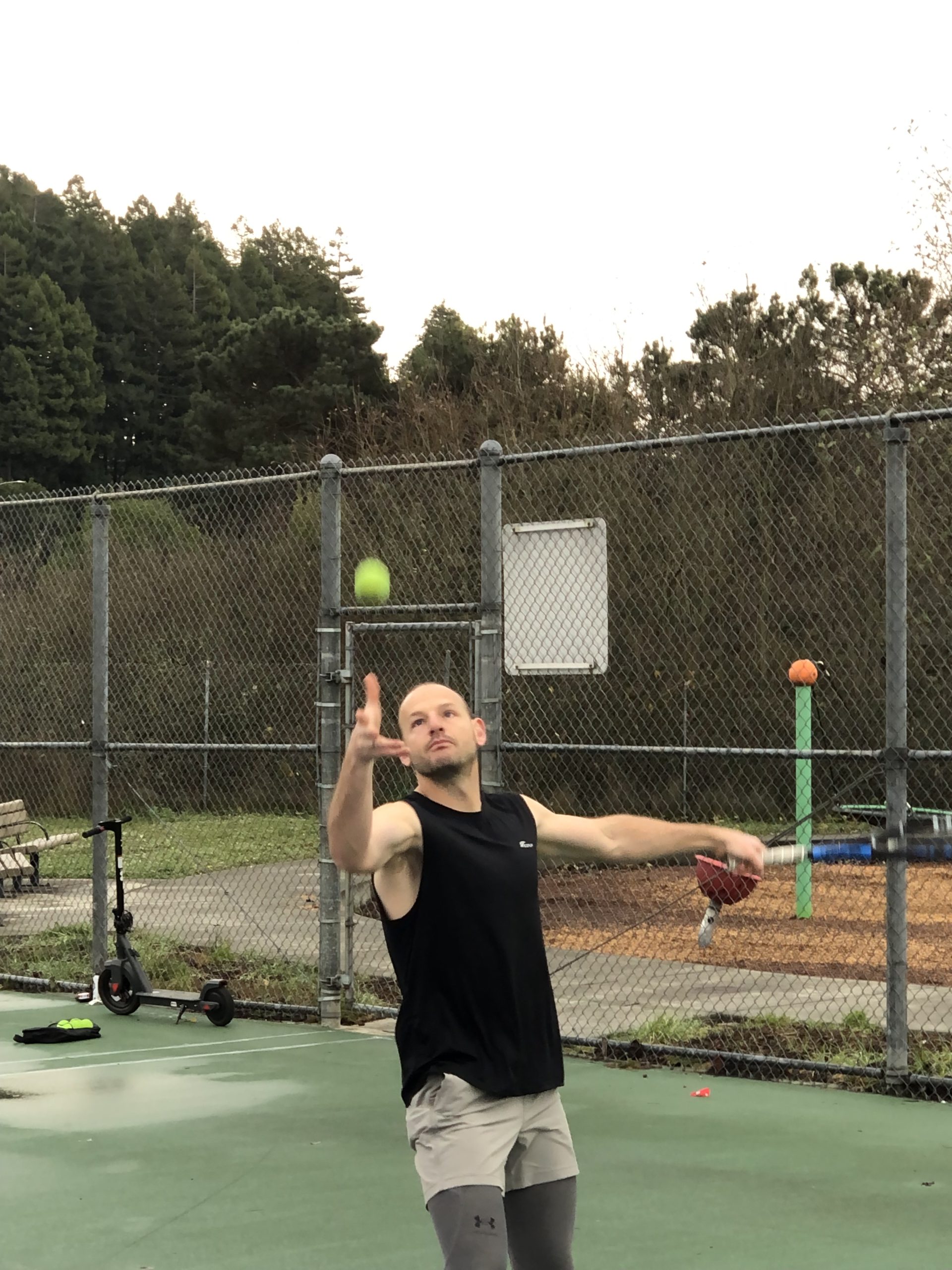
I come from a lineage of solid tennis players on my father’s side, and played for two years on my high school team. I was just barely good enough to secure the last spot in singles, and always relied on my athleticism to squeak out wins against players who were at or above my level of technique. In my freshman year of college, I briefly flirted with the idea of trying to make the University of Oregon’s club team, but quickly gave that up when ultimate frisbee swallowed my life. After that point, I didn’t play for 15+ years, except for occasional rally days with my dad when we vacationed together.
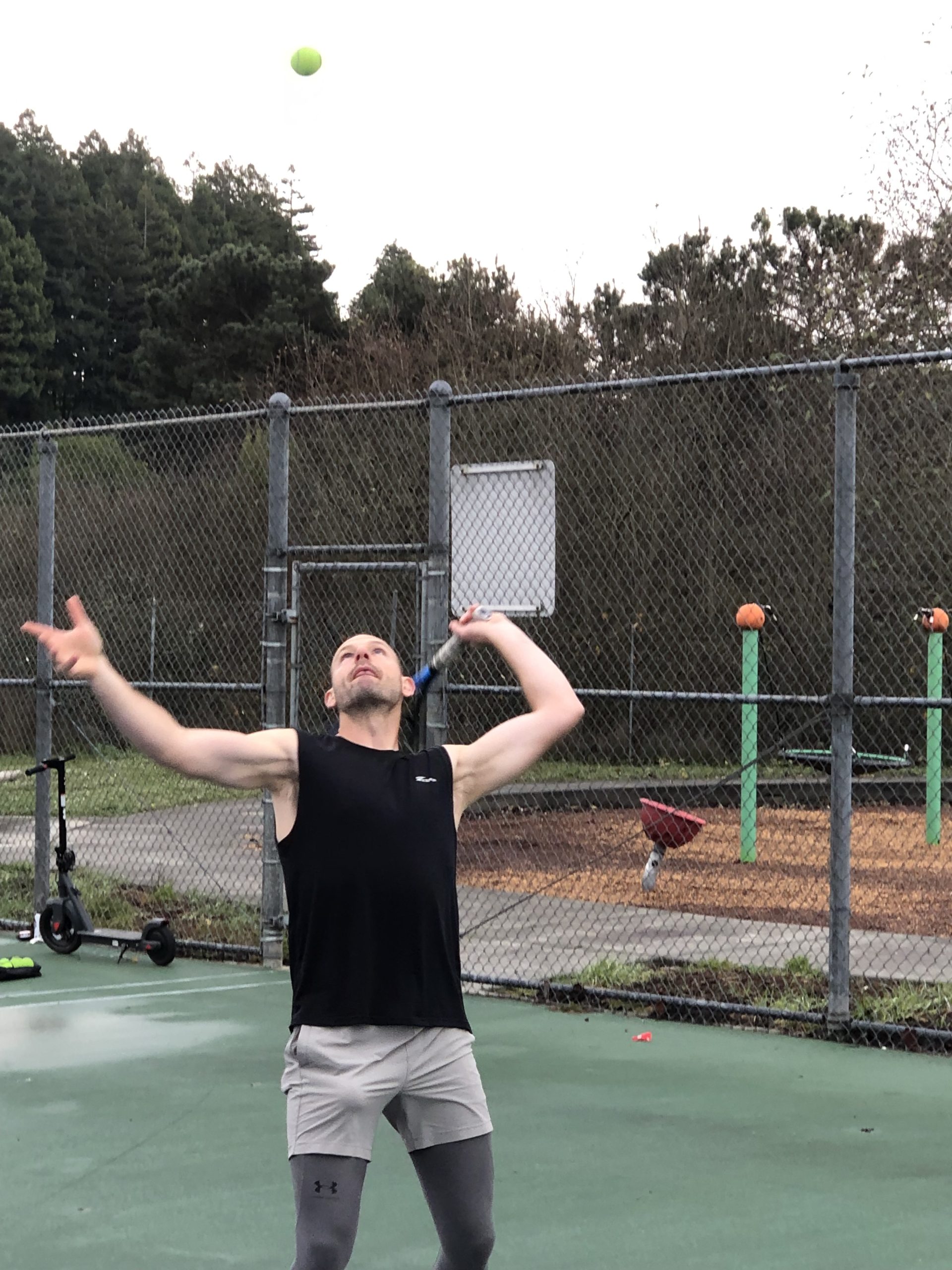
Getting back into the game has been the most joyful part of my year, hands down. Tennis is a game of precision, demanding extreme intimacy with the experience of failure. If I play for two hours, I’m likely to hit fewer than ten shots that land exactly as I wanted; the rest are either “good enoughs” or outright failures. And the mental journey of trying to make my serve more consistent––well, it’s a journey. But the difficulty of the game is also the most beautiful thing about it, because it operates as a condensed version of life itself. Each match plays out in an elusive rhythm of “good enoughs” and failures, punctuated by precious but ephemeral moments of kinetic and emotional glory. And between each and every stroke, there is the opportunity to reset, to begin again, to shed the burdens of what came before and drop into the present moment. And then the reminder that, of course, the present moment is all we ever have.
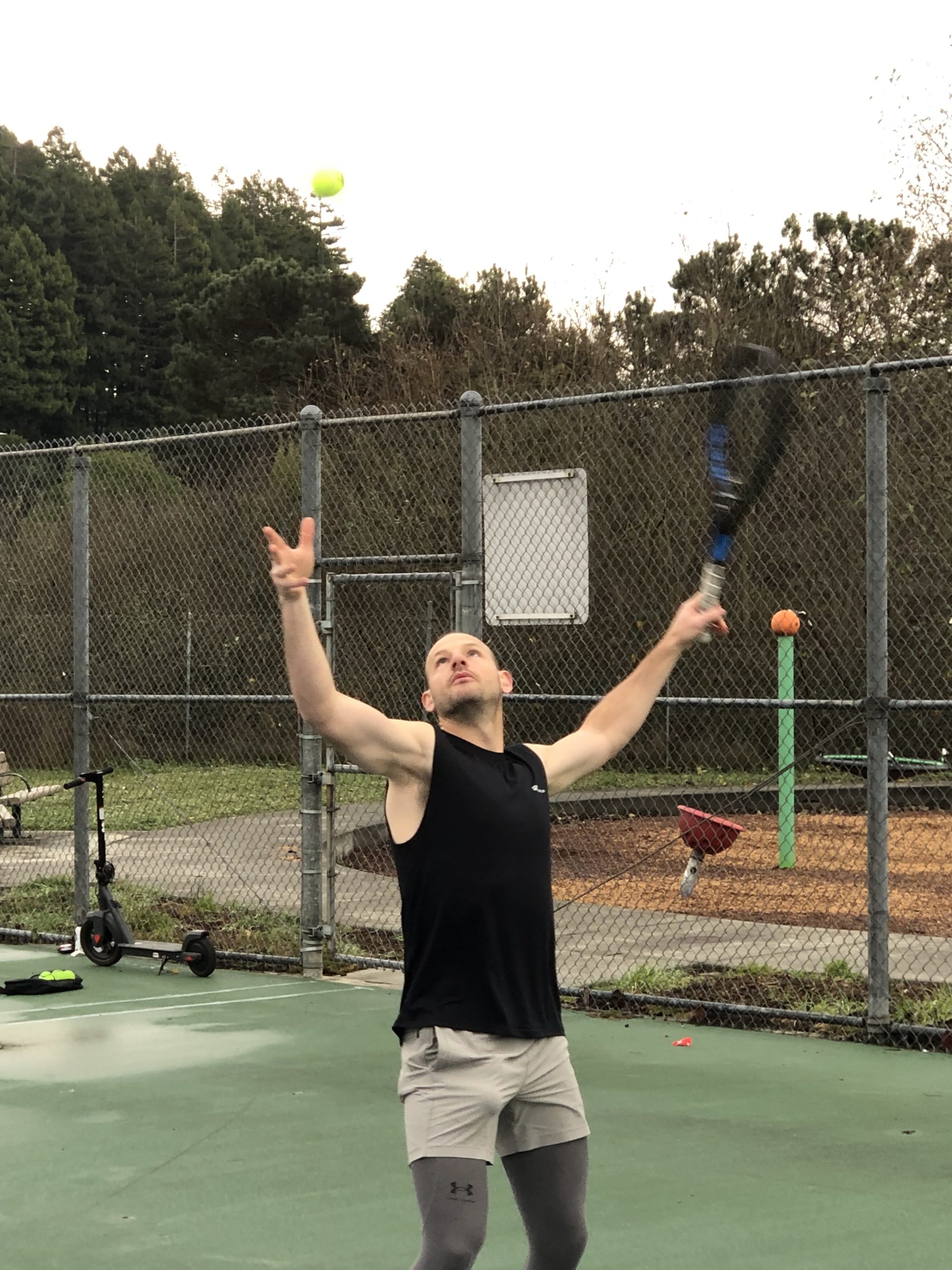
Fiction
At the end of 2020, I was captivated by Lily Brooks-Dalton’s Good Morning, Midnight. So I was excited this year when my wife suggested listening to The Light Pirate.
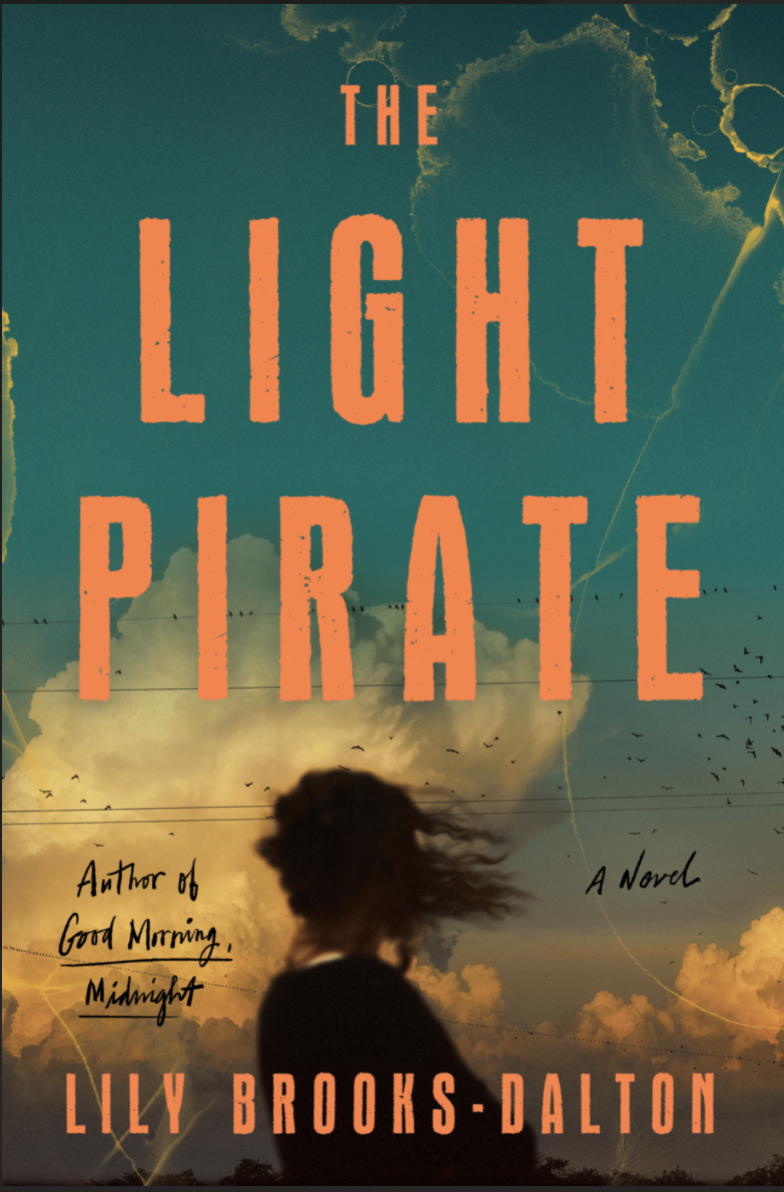
This book is a surprising and riveting work of climate fiction. It tells the story of Wanda, who is born during a hurricane on the Florida coast. As Wanda grows and matures, Florida’s landscape is continually eroded and transformed by the rising ocean. The book also includes a variety of well-crafted supporting characters who flow in and out of Wanda’s life, along with a mysterious smattering of what I would call “science-based magical realism.” Brooks-Dalton’s prose is clean and direct, but also subtle, choosing the perfect level of detail for each scene without cluttering the reader’s mind or wasting their time. I spent most of the book thinking it was pretty good, but then was utterly delighted by the poignancy of the ending.
As the list of books I have read grows longer, I’ve gained a deeper love of re-reading. I first read Cormac McCarthy’s Blood Meridian a dozen years ago, and decided to revisit the novel this year after my father read it and shared how deeply it impacted him.
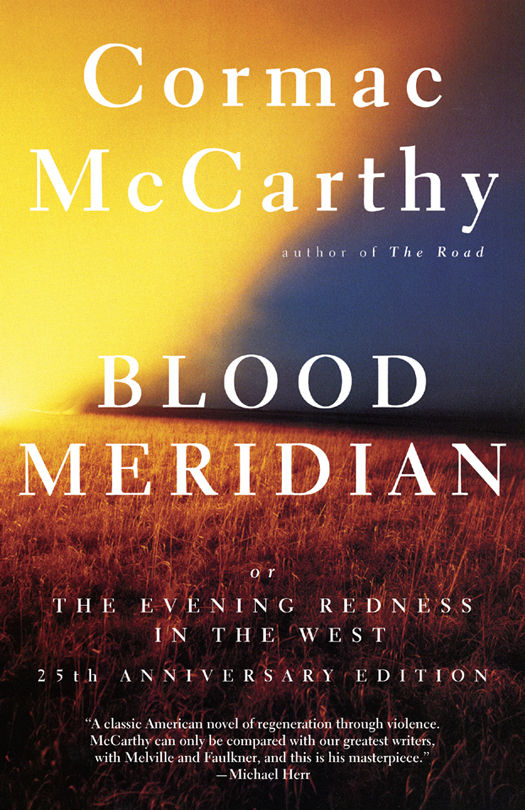
Blood Meridian is one of those books that’s tough to describe, but readers seem to agree that it has a distinctly Biblical vibe. Set in the American southwest during the 1850s, the plot unfolds in the context of constant and vicious conflict between American settlers, Native Americans, and Mexicans. The writing is exceptional, comfortably situating McCarthy in a pantheon of writers who achieved inimitable combinations of timeless storytelling and groundbreaking linguistic experimentation (think Joyce, Eliot, Dickens, Austen, Woolf, Faulkner, Tolstoy, Melville). One might reduce it down to a classic tale of good versus evil, which simultaneously feels accurate and overly simplistic to me. On this second reading, I was inclined to think of it as the definitive fictional examination of evil––pure, immortal, unfathomable evil.
My favorite novel of the year––Grady’s Hendrix’s My Best Friend’s Exorcism––gets extra credit for also being the book that most exceeded my expectations.
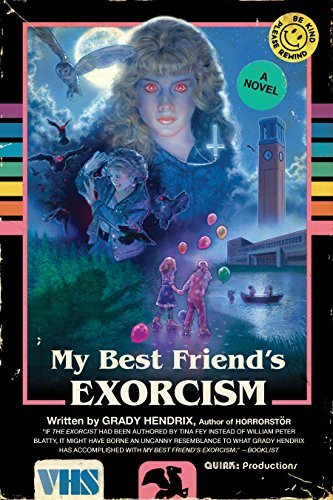
My wife suggested we listen to this audiobook on a holiday road trip, and I gave it the thumbs up because it seemed fun. I had no idea I was about to encounter such a radiant novel. My Best Friend’s Exorcism is about two best friends, Abby and Gretchen, who are about to graduate from high school in Charleston, South Carolina, during the 1980s. When Gretchen becomes the victim of possession by a mysterious and powerful demon, Abby must do everything in her power to save her. The book is weird, hilarious, smart, and surprisingly moving––a perfect short read for people like me who are drawn to narratives that focus on the nature and value of friendship. This paragon of genre fiction will especially delight readers who grew up in the 1980s and 90s. My wife and I both cried at the end, reminding me of what a precious experience it is to share stories with our loved ones and feel similarly moved by them.
The Fragility of Everything
The knowledge that our existence is delicate––that our little lives can be snuffed out at any moment by forces of nature or whims of bad luck––is the kind of knowledge we carry everywhere but don’t often confront. It operates in the background, whispering and nudging us toward perceived spaces of probable survival. It leads us invisibly, creating the precious illusions of control and self-determination. And then, every so often, like a master reminding its dog who’s boss, it rises before us in shapes suddenly clear and terrible, its voice a commanding and ancient message of extinction. Death speaks to all of us, and then we must choose how to listen.
The end of this year has initiated a new conversation in my life, one that replaces vague fears with images and numbers and actions too specific to ignore. In brief, my mother took a bad fall at the end of November, which resulted in a serious injury to her right hand that required emergency surgery. About a week later, she was hospitalized again due to a complication from the surgery; a large blood clot had formed between her heart and lungs, a clot that easily could have killed her before anyone had a chance to help. My mother is alive, but for the first time in my life I truly understand how easy it would be for that not to be the case. I am caught between feelings of immense gratitude and barely-thwarted grief, and while I have confidence that she will recover, I find myself unable to look away from the fact that recovery is temporary––not just for her, but for us all.
So death is speaking to me, and I am listening. Or trying to. Winter is a suitable season for such talk, and we need not treat it as hostile to our merriment. Joy and sorrow are bound together––two members of a common lineage, two branches of the same tree. However your holidays are spent, I hope they reveal pathways to meaning and connection with your loved ones. It’s all we’ve got, and it’s enough.
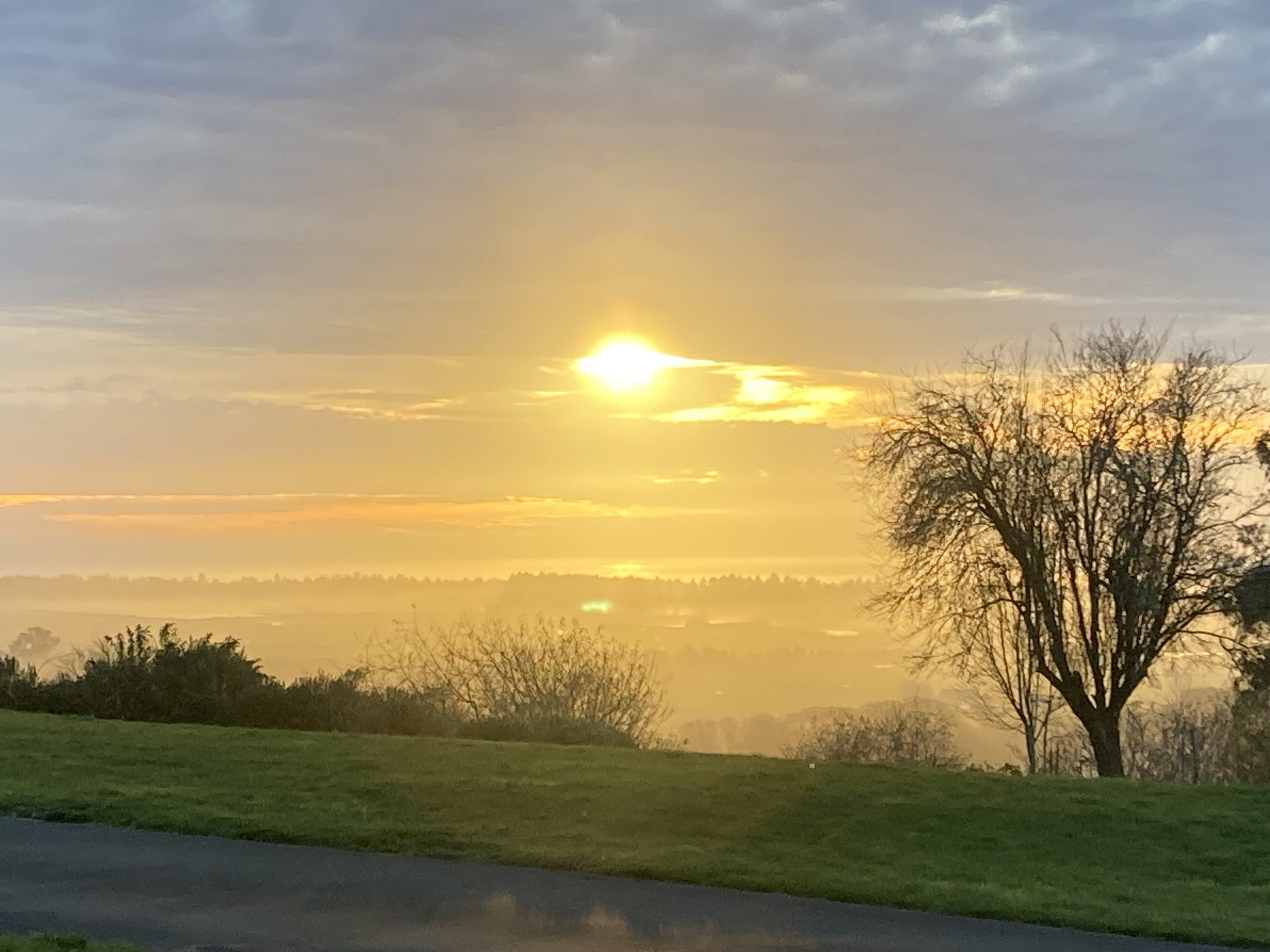
Note: This essay was originally published on December 21st, 2024. The original was lost in a database corruption event but I was able to republish on the date below.
Miles,
Catching up on my Words & Dirt reading. Really enjoyed your 2024 year-end review. I found it full of wit and wisdom. I was alarmed to read (at the end) of Gayle’s injury and trust that she is fully healed by now!
And meanwhile, yes, as someone who has spoken with a death a fair bit, I applaud your final thoughts on the subject. It deserves listening to yet need not be “hostile to merriment”.
Wishing you a full inner life in 2025. Lord knows the big (human) world out there is not doing so well at the moment.
J
Thanks Jim! I am always grateful for the time you spend with my writing, as well as for the thoughtful comments you share. Ma has made a lot of progress over the last few months and regained most of her normal functioning, but it’s a slow process and she continues to work on it. Sending love from Humboldt! 🙂